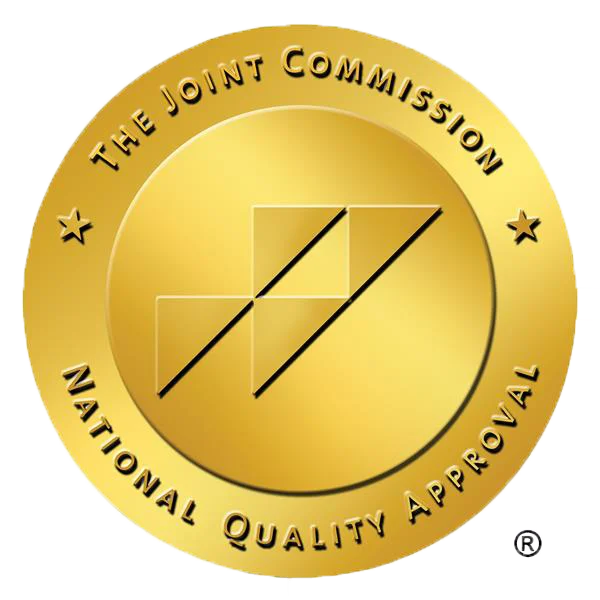Alcohol addiction doesn’t happen all at once. For some people, “just a few drinks” can progress into something more serious over time. Alcohol use disorder (AUD) can wreak havoc on a life and can be even harder to watch when it involves someone you love. Helping that person begins by increasing your understanding of the stages of alcohol addiction and learning to be an encouragement for them as they regain control of their life.
Spring Grove Recovery provides AUD treatment in a peaceful setting dedicated to healing. We offer structured, compassionate addiction treatment in Colorado Springs and accept Medicaid as well as most major insurance providers. We can help you recognize the warning signs and take the necessary steps to support your loved one, from medical detox to aftercare.
Find whole-person healing in the Rockies.
Your path forward starts here
Find your way forward
What are the stages of alcohol addiction?
AUD is a progressive medical condition that affects every aspect of your life. It can become all you think about and the major influence for your behavior. Addiction happens slowly, and subtly. Harmless—until it isn’t.
The stages of alcohol addiction offer a clear framework to help you understand how alcohol use can evolve into alcohol misuse, and finally addiction. Let’s begin by looking at what happens before addiction takes hold.
Stage 1: The pre-disorder phase
Before a person shows outward signs of addiction, they may be in what’s known as the pre-alcoholic or pre-disorder phase. This isn’t considered clinical addiction yet, but it's a critical time when a person’s behaviors surrounding alcohol begin to take shape, predicting what their future relationship with the substance will look like.
If you engage with alcohol in the following ways, it's wise to stop drinking:
- You drink to reduce stress or cope with anxiety
- Your consumption is gradually increasing
- You need more to drink to feel the same effects (e.g., building tolerance)
- When asked about your drinking habit, you minimize or rationalize
During this phase, many individuals feel like they have everything under control. But if their alcohol use follows any of the above characteristics, or they use it to avoid problems in their life, they may be heading towards riskier behavior. It’s a good time to reach out for support and learn new ways to cope with life’s stresses.
Stage 2: Early AUD
As alcohol use increases, a person is likely to:
- Drink more frequently or in greater quantities
- Choose alcohol over other responsibilities or hobbies
- Begin hiding their drinking or downplaying how much they consume
This stage may still be dismissed as “just a bad habit,” even if individuals are blacking out during binge drinking episodes. Since this is socially acceptable in some environments, recognizing it as a problem can be tough. But it marks the beginning of a much deeper reliance on alcohol.
Stage 3: Middle stage AUD
Alcohol starts to cause clear disruptions in daily life. An individual might begin:
- Missing work, school, or family obligations
- Engaging in dangerous behaviors, like driving under the influence
- Experience mood swings, seem irritable, or become secretive
Typically, this is the phase where people notice something is wrong, and concern sets in for loved ones. The person at this stage isn’t showing up for life in the ways that they used to. They’re less reliable.
Stage 4: Late-stage AUD
Chronic alcohol use results in the body adapting to the substance, becoming dependent on it for daily functioning. There are serious health issues to contend with during this stage. Your liver, memory, and cognition can all be significantly affected if alcohol use continues to go unchecked. Signs of this stage include:
- Symptoms like shaking, sweating, or nausea if individuals try to quit or haven’t had a drink for an extended period
- Failed attempts to quit or cut back
- Legal and financial troubles
- Mental health struggles like depression or suicidal thoughts
- Social withdrawal and damaged relationships
If individuals try to quit on their own at this late stage, it can feel nearly impossible without clinical support. At Spring Grove Recovery, our licensed clinicians provide warm, welcoming care to help individuals manage withdrawal symptoms safely.
Stage 5: Recovery
The road from detox to living a life of sobriety isn’t easy, but it’s worth it. You’ll learn just how resilient you can be and how peaceful life can feel without substances controlling every moment.
Addiction can be devastating for the person experiencing it and for their loved ones. Those living with addiction may feel shame over their actions, and loved ones likely feel helpless. But, with professional, person-centered addiction treatment, like that at Spring Grove Recovery, healing is possible.
Discover your options
The 5 Phases of Addiction Progression?
Alongside the stages, it’s helpful to understand the five general phases of how substance use becomes addiction:
- Initiation: The first experience with alcohol
- Experimentation: Casual or social use
- Regular use: Drinking becomes a habit
- Risky use: Negative consequences emerge
- Dependence/addiction: Loss of control, physical and psychological reliance
Recognizing these phases can help you better gauge if you or your loved one is living with addiction, and how urgent it may be to enroll in treatment.
What causes AUD? Understanding the “Why”
Not everyone who drinks alcohol develops an addiction. Some people can have a glass of wine or a beer at a gathering, and not have another for months, or have an occasional weeknight cocktail at happy hour. What can be confusing is why alcohol use for one person becomes misuse for another.
Alcohol addiction isn’t the result of a single choice. It’s influenced by a combination of biological, psychological, and environmental factors. Understanding these root causes can help reduce shame, build empathy, and gain clarity for yourself or as you support your loved one through recovery.
Genetics and family history
Genetics play a significant role in whether someone is more vulnerable to developing an alcohol use disorder (AUD). If addiction runs in the family, the risk increases. It’s important to let this inspire caution when it comes to your own relationship with alcohol.
Mental health conditions
Many people with AUD also struggle with anxiety, depression, post-traumatic stress disorder (PTSD), or trauma. Alcohol may initially feel like relief—but over time, it worsens those issues and leads to what’s called a co-occurring disorder—experiencing both a substance use disorder and a mental health concern.
Early exposure and learned behavior
Growing up around heavy drinking or experiencing alcohol as a “normal” way to manage stress can shape a person’s relationship with alcohol from an early age.
Stress and life circumstances
Job pressure, financial strain, relationship problems, or grief can lead people to drink more frequently or excessively as a way to cope.
Personality and coping skills
Some individuals are more impulsive, emotionally sensitive, or struggle to regulate their emotions. Without healthy coping skills, alcohol can become a quick, but harmful, escape.
These factors matter. Without understanding them, it can be easy to let your frustrations guide how you feel about a loved one with AUD. But it’s important to understand that their addiction is not a moral failing or weakness. It’s a medical condition shaped by a variety of intertwined human experiences. The good news is that with professional care, these underlying issues can be addressed, often for the first time.
Treatment at Spring Grove Recovery goes beyond stopping alcohol use. It’s about healing the root causes and building a stronger foundation for new beginnings.
Find your way forward
How do I help my loved one seek treatment?
Watching someone you love struggle with alcoholism can break your heart. But your support could be exactly what they need to move forward. Here’s how to approach the situation with the compassion needed to help move someone to action.
- Lead with concern: Avoid confrontations, ultimatums, or judgment. Let your loved one know that you care, you’re worried, and that you want to help.
- Offer information, not pressure: If your loved one is open to help, be ready to share treatment options.
- Remind them that they’re not alone: Let them know exactly how you’re willing to support them during recovery.
Protect your own wellbeing and consider getting support for yourself by joining a support group. Know that you don’t have to navigate this process alone. Our admissions team is available 24/7 to answer your questions and walk you through treatment options for your loved one.
What do the stages of recovery look like?
Just like addiction progresses in stages, so does recovery. Here's what your loved one can expect on the recovery path.
Stage 1: Medical detox
Safely managing withdrawal symptoms with medical support to ensure a stable, secure start. This process will help your loved one access the next stage of treatment with more clarity.
Stage 2: Residential treatment
A structured 21–30 day program that includes individual therapy, group support, and skill-building. During this time, our residents can focus completely on healing.
Stage 3: Emotional and behavioral healing
Addressing trauma, mental health conditions, and triggers through evidence-based therapies, such as SMART recovery, cognitive-behavioral therapy (CBT), motivational interviewing (MI), and life skills training.
Stage 4: Aftercare and long-term planning
Once formal treatment has come to an end, our team works with you to create a customized recovery plan. Referrals, support networks, and relapse prevention strategies are all part of how Spring Grove Recovery invests in the residents of Colorado Springs.
Why choose Spring Grove Recovery?
Spring Grove Recovery is a compassionate recovery center in Colorado Springs. We believe in whole-person healing and provide a trusted sanctuary for renewal and growth. With us, your loved one will find:
- Safe, medically supervised detox
- 24/7 admissions and transportation
- Evidence-based residential treatment
- MAT options (Suboxone, Subutex, Vivitrol)
- Support for co-occurring disorders like PTSD, anxiety, and depression
- Acceptance of Medicaid and most major insurance providers
We understand the unique challenges of addiction and the strength it takes to recover. We’ll treat your friend or family member with respect and empower them to create a life they’re proud of.

Start your healing today
Renewal begins at Spring Grove Recovery
You don’t have to wait for things to get worse. Whether someone important to you is in the early stages of drinking or facing severe alcohol addiction, treatment can change their trajectory.
Reach out to Spring Grove Recovery today to speak with someone who understands and get your questions answered. Call 719.415.3460 or submit our online form.

